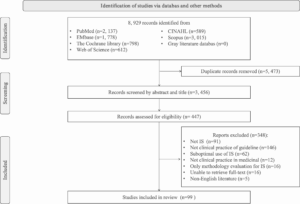
A groundbreaking study led by the Centro Nacional de Investigaciones Cardiovasculares (CNIC) in collaboration with international partners has concluded that beta-blockers, traditionally prescribed to heart attack survivors, offer no clinical benefit to those with preserved cardiac function. This revelation, published in The New England Journal of Medicine and presented at the American Heart Association Congress in New Orleans, could transform treatment protocols for millions worldwide.
The comprehensive meta-analysis pooled data from 17,801 myocardial infarction survivors across five global clinical trials, including REBOOT, REDUCE-AMI, BETAMI, DANBLOCK, and CAPITAL-RCT. The findings indicate that beta-blockers do not reduce the risk of death, recurrent infarction, or heart failure in patients with a normal left ventricular ejection fraction (≥50%).
Study Insights and Implications
Dr. Borja Ibáñez, CNIC Scientific Director and principal investigator, emphasized that the study found no benefit in beta-blocker therapy for any subgroup of post-infarction patients with preserved cardiac function. “The results were consistent across all patient subgroups, regardless of age, sex, or the type of beta-blocker used,” he stated.
Interestingly, the findings in female patients, particularly from the REBOOT trial, suggested potential harm from beta-blockers. However, the meta-analysis confirmed that these differences were not statistically significant. The CNIC remains committed to exploring sex-based differences in cardiovascular treatment responses.
A Paradigm Shift in Cardiovascular Treatment
For over four decades, beta-blockers have been a staple in post-heart attack care. This practice was rooted in clinical trials from the 1970s and 1980s that demonstrated their benefits. However, advances in infarction management and improved patient outcomes have prompted a reevaluation of this approach.
Dr. Valentín Fuster, CNIC General Director and a key figure in the study, remarked, “In 2025, we have overturned a treatment paradigm that had gone unquestioned for decades. From now on, patients discharged after infarction with normal cardiac function will no longer receive beta-blockers. This is one of the most important changes in cardiology in recent decades.”
Beta-Blockers: Still Vital for Some
Despite these findings, beta-blockers remain crucial for patients with reduced left ventricular function after infarction or those with chronic heart failure or arrhythmias. The trials did not include patients already on beta-blockers for these conditions, so the conclusions apply solely to new prescriptions post-infarction in patients with normal cardiac function.
Dr. Ibáñez advises patients not to discontinue beta-blockers without consulting their doctors, as some may be taking them for other valid reasons. “It’s important to speak with a physician,” he adds, emphasizing that the decision should be made during routine follow-ups.
Global Impact and Future Directions
The study’s implications are vast, as approximately 70% of infarction patients today have preserved cardiac function. This research is expected to significantly influence clinical practice guidelines worldwide. Dr. Fuster highlights that this study is part of a series of CNIC-coordinated research efforts, such as PESA, SECURE, and DapaTAVI, that are reshaping global clinical practices.
The CNIC, recognized as a Severo Ochoa center of excellence, continues to lead in cardiovascular research, supported by a public-private partnership that includes the Spanish government and major private companies.
As the medical community digests these findings, the CNIC and its partners remain at the forefront of cardiovascular innovation, committed to translating research into real-world patient benefits.







